[00:00:00] ANNE BOGEL: Hey readers, I'm Anne Bogel and this is What Should I Read Next?. Welcome to the show that's dedicated to answering the question that plagues every reader, what should I read next? We don't get bossy on this show. What we will do here is give you the information you need to choose your next read. Every week we'll talk all things books and reading and do a little literary matchmaking with one guest.
Readers, as we jump in today, I want you to know that conversations like the one we're having today with Jessica make me think about all of the ways that understanding your reading life makes it better. In the Modern Mrs. Darcy Book Club, which I shepherd, we always say that we are learning to read better together. Every season in book club I think it's the best season, but this fall is especially good.
[00:01:00] If you are interested in short stories like today's guest, this is the perfect time to join. Like any book club, we read one book each month and then typically we talk to the author.
In November, we are reading short stories and then we're talking with Deesha Philyaw about her collection, The Secret Lives of Church Ladies.
Our book club members also enjoy regular live events like author talks, classes like Greek mythology for readers that we just did and you can access on replay and big events like Fall Book Preview and our upcoming Team Best Books of the Year.
This is a great time to join a book club or gift a membership to your favorite reader. Join us at ModernMrsDarcy.com/club.
Now here at What Should I Read Next? HQ We've been cooking up a short story episode for some time. So when today's guest wrote in with a readerly conundrum centered around short stories, I thought it was the perfect opportunity to dive into this literary topic in conversation with a fellow reader.
[00:01:57] Jessica Crockett is a French-to-English patent translator who lives in Chicago. When she's not enjoying board games or ballroom dancing, she'll often be found reading. And today, she'd love my help in untangling her relationship with short stories.
She keeps buying short story collections because they appeal to her, but then she either never picks them up or she'll start them and wander away from the collection without completing it, only to realize months later that there's still a bookmark in that book that she hasn't touched in ages.
Jessica's wondering whether she's missing something in her short story reading experience, if she needs a change in approach. Why doesn't she understand? She wants to know. We're going to talk all about it today.
It's a great conversation. Let's get to it.
Jessica, welcome to the show.
JESSICA CROCKETT: Thank you. I'm so happy to be here.
ANNE: Well, thank you for joining me today. And thank you for embarking with me on a... well, not-so-grand literary experiment. Readers, we're doing this episode a little bit differently and you will hear about that shortly.
But first, Jessica, let's get started with hearing more about you. Would you tell us about yourself so we can give the readers a glimpse of who you are?
[00:03:01] JESSICA: Absolutely. I live in Chicago with my husband and our three ragdoll cats. In my career, I am a patent translator. I translate from French into English. I've been doing that for about 20 years now. Patent translation is a little different from book translation. Not as much room for creative license. It's pretty strict. But it's something that I really enjoy doing.
ANNE: How did you come to that? Also, I'm so sorry, this is probably over-romanticizing your very practical work, but I just think that a patent translator sounds like the protagonist in the kind of book I'd love.
JESSICA: You know, I wish that it was that interesting. But it's something that I kind of fell into by accident. I was originally planning to be a high school French teacher, and in my senior year of college, when I switched over from theory classes to more practical classroom management classes, I basically had a giant panic attack and realized that at the age of 20, I was definitely not ready to manage a room full of high schoolers and told my dad that I wanted to drop my education major. And he said, "Okay, but what are you going to do with a French degree?" And I said, "I'm going to translate."
[00:04:43] ANNE: And I'm definitely not making this up as I go.
JESSICA: Definitely not. Definitely not. So that was what I did. I went to graduate school and got a master's degree in translation and interpretation. At this point, I am only doing written translation, I am taking a break from interpretation, the difference being that interpreting is spoken and translation is written. But there was also a big portion of my career where I also worked as a simultaneous interpreter.
ANNE: How do you notice the influence of your day job in your reading life?
JESSICA: It has affected my willingness to read in my foreign language. I used to read in French for fun and now I have a whole bookcase full of French novels that I have not touched in years because they feel like work.
ANNE: Oh, interesting.
[00:05:43] JESSICA: Yeah, it's been an unfortunate side effect. But when I get to the end of the day after working in French all day, my brain sort of sees reading in French as work now and I just don't want to unwind with more of it. And so when I pick up a book at the end of the day, I find that it's really hard for me to choose one of those French novels in French.
Other than that, though, I'm not sure that I see a huge impact of my work on my reading life. Although I would say I do find when I'm reading a book in translation, I enjoy, if it's particularly a book in French, kind of reverse engineering a little bit the translation sometimes.
I like when I can read a book from French that's been translated into English, trying to kind of figure out what it might have said originally. It's sort of a fun puzzle for me.
[00:06:53] I recently read Clara Reads Proust, and it was really fun with that one in places to think, "Oh, I bet this was what it originally said in French."
ANNE: Because you read it in English.
JESSICA: Exactly.
ANNE: Okay. So I can still recommend French favorites if I think they're perfect for you.
JESSICA: Absolutely.
ANNE: In translation?
JESSICA: Absolutely.
ANNE: Okay, wonderful. Jessica, what do you like to do when you're not reading?
JESSICA: I really enjoy ballroom and Latin dance, which is something that I've done for about 10 years. My husband and I play a ton of board games. That's something that he has always loved, and I have gotten more and more into with him over the years, and has become a really regular part of our routine, to the extent that I've been noticing a drop in my reading lately. He and I may have to talk about finding a better balance. But we play a lot of board games.
ANNE: Jessica, how would you describe your reading life?
[00:07:52] JESSICA: I have always been a really big reader. When I was a kid, I would subject my grandparents to me reciting Frog and Toad books out loud while my grandfather played the piano behind me. Yeah, it was, I'm sure, adorable.
I have pretty eclectic taste. I will try pretty close to anything except horror, which is kind of funny given that my husband is a horror filmmaker. I know.
I read a lot, usually somewhere between 150 and 200 books a year every single day, even if it's just a few minutes.
I am very much a mood reader. It can sometimes be tough for me to land on the right book while I walk around our house saying, "I don't know which one I want. Which one am I in the mood for?"
Every year, my husband and I take a, I call it fake camping trip, where we rent a tiny cabin for a couple days out in the woods. I think my favorite thing about that is that we drive out there, which means that I have room in the car for pretty much as many books as I want to take.
[00:09:12] And because I'm such a moody reader, that usually means that I load up the car with 50 to 60 books for a 48-hour stay in the woods. My husband knows this about me, right? He knew who he was marrying, so he's not surprised when I say, "Okay, I'm ready" and I've got one clean shirt and four bags full of books for this trip to the woods. And I'll read three of them because we get there and I don't look up the whole time we're there until he says, "Do you want to make s'mores?" Other than that, I'm just reading the entire time that we're there. But I don't know what I'm going to want while we're there so I have to be prepared.
ANNE: You got to be ready for anything.
JESSICA: Yes. All eventualities.
ANNE: Well, we were so excited to get your submission at What Should I Read Next? HQ because you could not have known this, but I'd been contemplating doing a solo episode focused on short stories for some time. But then when we got your submission that had a very specific plea in it, I thought, "Gosh, wouldn't it be more fun to do it with you?" So thank you for being game to try something new with this plan.
[00:10:29] But I'm very interested in hearing more about your burgeoning interest in short stories. Would you tell us more about what you're looking for in your reading life right now?
JESSICA: Yeah. I am really interested in reading more short story collections. It's something that I have tried to do off and on over the years with kind of mixed results. I like the idea of having a short story collection to read maybe alongside a novel, something that I could potentially dip in and out of that might work like when there's a pocket of time during the day, something like that.
What tends to happen, though, is that I will pick up a short story collection and read one, maybe two stories, and then wander away from it and not come back.
[00:11:27] A lot of the time, I think I feel like I finished a story and it feels like, "Oh, I finished something. I'm done with that now." It is kind of hard for me to return to the book when I've got that sort of feeling of completion already.
Another issue that I think I run into a lot is the collections where I'll finish a story and I feel like, Where's the rest of it? They sometimes don't feel complete to me in a way that makes me feel like I'm looking for the wrong thing in the short story.
Maybe I don't fully understand what to expect from a short story or what not to expect, what I should or should not be looking for in that particular form.
[00:12:27] The ones that have tended to work a little better for me, I think, have been interconnected short stories, whether very, very directly interconnected or sometimes just very slightly. But having that thread between the stories where there's more of a continuous narrative arc of some sort seems to give me something to hold on to in a way that has helped me be a little more successful in reading collections.
It does feel a little bit like cheating to me then more like maybe I'm reading a novel with an unusual structure than a short story collection. But I have had a little more success with those, I think.
ANNE: I would love to hear more about the appeal. You've said that you keep buying them and these short story collections sound great at the time, but then you either don't actually pick them up at all or you start them, and like you said, you finish a story, it feels like a stopping point, you end up not picking it back up. And yet you keep buying them and you want to dive in here. What is the appeal? Are you able to articulate what it is that's pulling you in for the genre?
[00:13:50] JESSICA: I like the idea of something with that shorter commitment, maybe is the right word. It feels like something where I could say, I'm not ready to start a new book quite yet, or I just have 20 minutes and don't want to get into my book right now because I'd like a bigger block of time or something along those lines. That's part of it, I think, something where I might be able to kind of slide it in to those smaller windows.
I also... I don't know. It feels like a challenge I haven't quite met yet, understanding them and what they have to offer as a literary form. I would really like to, I don't know, just understand what they have to offer. They seem so popular.
[00:14:53] When an author I really like has a short story collection, I would like to be able to continue reading what that author is putting out there. But I don't know, right now it's just not working for me when it's in that form.
ANNE: Okay. So it's not working and something in you, in your brain is circling back to figure out the unresolved situation here.
JESSICA: Mm-hmm.
ANNE: Okay. Jessica, you said that it felt like cheating to read interconnected short stories, even when you can identify these are working best for you, but it feels like you're reading a novel. I'm imagining you're seeing that an interconnected short story collection isn't meeting the challenge.
But my question here, and we really have to fix the semantics, but is it bad to cheat? Is it bad to use this... gosh, I wonder if I should argue with your premise. But is it insufficient for you to find that you may love an interconnected collection? It sounds like maybe that's not enough. What I'm wondering is if I need to argue with you about like, no, cheating isn't actually bad. Like this is working for you. Like, let's lean in.
[00:16:09] JESSICA: I mean, yeah, I think I could see it as like a gateway maybe, an intermediate step. I'd still like to get all the way there. I would still love to figure out how to appreciate independent non-interlinked short stories, but I could see using those linked short stories as sort of a stepping stone to get there.
ANNE: Okay. I love it. What are some of the interconnected collections that have really worked for you?
JESSICA: I loved No Two Persons by Erica Bauermeister. That one worked really well.
ANNE: That legit novel worked great for you.
JESSICA: Was it a novel? It felt like interconnected short stories.
ANNE: It does. It does.
JESSICA: There was a collection called She and Her Cat that was I think just three stories, but that had some interconnection in there. I really liked that one.
[00:17:15] There's another collection by Kate Atkinson called Normal Rules Don't Apply. That was another one that worked really well for me.
ANNE: What has worked less well?
JESSICA: I did not do well with After Parties. That was one that I did not manage to finish. I ended up giving up on that one.
ANNE: Wait, I feel like I've read this. Who's that by?
JESSICA: Anthony Veasna So?
ANNE: No, I have not. Okay. So that's the 2021 collection about Cambodian American life. And a reminder that all these books are listed in the show notes of the episode. So is that one that felt more incomplete to you?
JESSICA: It did. Yeah. That one I had a really hard time I think connecting with the stories. And because they were each their own kind of isolated story, it was pretty easy for me to walk away from that at a certain point where I just felt no need to continue to the next one.
[00:18:23] And then right now I am in the middle of Roman Stories by Jhumpa Lahiri. That's one that I started months ago with the intention of reading one story a day. Given that I started it months ago, and there are not 90 plus stories in it, you can kind of guess how well that plan is working out.
ANNE: I'm wondering about pacing and expectations. Something we've done in Modern Mrs. Darcy Book Club is had a month we've read a poem a day, but we have a short story month about to begin in November. And something we discussed was a short story a day is actually a lot and yet the rhythm of one a day works really well for a lot of people.
I'm wondering how much of a routines person you are if a pace of one a week would feel perhaps more welcoming and sustainable, or if doing something weekly is actually much harder than attempting to do it daily.
[00:19:22] JESSICA: Weekly might work better. I think that having it take up my reading time every single day might actually be part of the issue. I'm in a period right now where I don't have as much daily reading time as I used to. And so giving up that time every single day for the short story collection versus my novel has, I think, maybe made it feel like it's not alongside my novel, it's replacing my novel. And maybe that is part of the resistance to picking it up in the first place.
ANNE: Because you don't want it to replace your novel. One of the reasons that the genre interests you is you like the idea of fitting it into the cracks and using smaller amounts of reading time. Does that sound true to what you're hoping for?
JESSICA: Yes.
[00:20:20] ANNE: Okay. Of course, when it comes to any work, there's being interested in the genre and then finding the particular books that are right for you within it, or reading books that are all wrong for you, but learning about the genre through the experience of trying a variety of different things within it.
We've talked about format and approach. I'm wondering now about the kinds of stories and themes you enjoy.
JESSICA: I generally I'm, like I said, a pretty eclectic reader. I will try pretty close to anything. I do not read a lot of horror or gore. But other than that, I enjoy messy family dramas. I enjoy the thimble full of weird that has been talked about on other episodes. Anything that gives me something to think about or chew on, things that give me a different perspective that I might not have been familiar with or thought about previously.
[00:21:28] ANNE: Do we think that perhaps the lack of stickiness with short stories has to do with finding the right approach or finding the right books? I made that a dichotomy, but it's really not one.
JESSICA: I think it's maybe a combination of the two. When I think about the collections that have really worked for me, I think also most of them have been ones that I read while we were at the tiny cabin for those fake camping trips. So there've also been at times where I had a really dedicated block of time to read them.
But the subject matter, both of the two that I'm looking at that really, really worked for me had some commonalities. They both had some, I guess, magic to them that was really interesting. Some moments of, "Wait, did that really just happen? Was that in someone's head? Was that real? That was really fun." That sort of thing.
[00:22:35] ANNE: Interconnected short stories have worked for you, but there are other ways that collections of short stories are grouped. Sometimes they're just collected short stories. An author who hasn't written a ton of fiction might have their body of work gathered in one volume. Sometimes they're grouped by date. Sometimes they're grouped by theme or location.
I'm thinking of... well, I'm thinking of a lot of books. But for example, many people know and love the Irish writer Claire Keegan for her short works, Foster, which might actually be short story length, I've seen it referred to as a short story in a novella, and Small Things like These. But she had a story collection come out a couple of years ago called So Late in the Day. That was described as being stories of women and men.
And compared to So Late in the Day and Foster, some of these stories... I mean, I think there's just three, but some of them are weird and not what a lot of readers expected. But they were grouped by theme, and the reader knew to read them through the lens of these are stories of women and men. How does that question of themes and grouping land for you?
[00:23:50] JESSICA: I think that sounds really, really interesting. I think if I know going in maybe kind of what that is, that could help. I think that has sometimes been more successful for me than others.
I, last year, read Patricia Engel's The Faraway World, which I think was similarly a collection that had sort of a grouping or a theme that I struggled with a little bit, but ultimately enjoyed. I like the sound of the Claire Keegan collection.
ANNE: Weird. It's weird. It's not what I expected from Claire Keegan. I know that I was not alone there. Not a criticism at all. I hope that sounds intriguing to a lot of readers.
Jessica, there are a couple things that I think would be helpful to know about short stories. One is... gosh, I wish I knew where this came from. I feel like our team member, Ginger, told me that she read the Deesha Philyaw said it, but I can't find it verifiable anywhere online.
[00:25:03] But we're talking to her as we read her short story collection, Secret Lives of Church Ladies, together in Modern Mrs. Darcy Book Club in November, and we will absolutely be asking her.
But the idea that I think is so helpful here, and whoever coined this is a genius, that a short story is about a revelation, but a novel, a longer story, has a resolution. So you loved No Two Persons, the novel in stories by Erica Bauermeister, which the concept of this book is really cool, y'all, if you don't know about it. It was a Summer Reading Guide selection in 2023. We talked to Erica Bauermeister in book club.
This is the story of how a debut novel written by an author who gets the first story, the first point of view in this collection, how this debut novel changed the lives of 11 people who were touched by it, either because they read the book, they helped conceive the book.
[00:25:59] We hear from the editor's assistant who finds it in the slush pile, and the agent and other people who were involved in the process. Even though we, I don't think, ever return to anyone's point of view once we visit them and say goodbye, but in some, we have a complete narrative arc.
In a short story, you're dropped into a moment. Like you get an epiphany, you get a scene, you get a revelation. But it doesn't necessarily have, in fact, it rarely has a resolution. And so when you say that a short story leaves you with a premature feeling of completion, that it feels like it hasn't been completed, you asked if you were looking for the wrong thing, perhaps. I don't know, what are you thinking? How does that idea of revelation versus resolution sound to you?
JESSICA: That definitely helps. I do think that answers that question of looking for the wrong thing. It reminds me of an English class that I took in college where I complained that nothing was happening in the book that we were reading and the teacher... I know. It was fortunately the kind of college where we could get away with things like that.
[00:27:20] And the teacher very kindly wrote back on my paper that I was looking for the wrong kind of action. I just hadn't really encountered a character-driven book before that. So it really helped refocus my expectations. I think that this feels very similar, just a refocusing of expectations. That I should not really be looking for resolution, but more for revelation.
ANNE: I remember the day I found out that I just misinterpreted the assigned response paper in my freshman seminar. And I was just writing about my feelings. And she's like, "No, I'm looking for an argument." That's not the kind of response I'm looking for.
Just thinking about the revelation, earlier this month, Will and I went to the Kentucky Author Forum, which I feel like I'm constantly giving shout-outs to. If you are near Louisville, Kentucky, the Kentucky Author Forum is a top-notch event where they bring in best-in-their-field authors and interviewers to have great conversations about usually current but not brand, brand-new books.
[00:28:30] And Amor Towles was in town to talk about his short story collection, Table for Two, which he calls his New York stories. That's the thematic grouping there. And I will not try to replicate an Amor Towles story, but if we can find a YouTube clip, friends. We will share it.
But he talked about how we know what a novel is, but a short story is like if you are seated for dinner in a nice restaurant next to a couple who's already in the midst of a heated conversation, and then they get up and leave before they finish the conversation and you're left... First, you couldn't stop listening in. You know you're not supposed to be eavesdropping, but it sounds so interesting. Like, what's happening?
They're talking about a conflict, but what happened? You wish you had more context. Like, who's Tom, and what did he do, and what did she do, and why is he upset? But then their check comes, they pay it, and they leave before you hear the end of the story. And you're like, "Wait, wait, wait, wait, wait. Come back. Come back. I have questions."
[00:29:29] He says that's the experience of reading short stories. And it's up for you as a reader to decide if that's a direction that you want to go in your reading life. But there's a lot to appreciate in short stories. I mean, do you know what you're looking for, why you feel like you're drawn back to the genre?
JESSICA: First, I love that explanation. Yeah, I think that part of it is just feeling like the puzzle of it really intrigues me. That feeling of something that I haven't figured out yet.
You know, reading is such a big, big part of my life that for there to be a piece of it that I feel like I just haven't quite figured out how to enjoy has kept me really intrigued and wanting to understand it. It bothers me when I don't understand something. So I think that's been a really big part of it.
[00:30:27] But also, I do think that... I like the idea of something short, of some kind of smaller, shorter form to read. When I was much younger, I remember reading Dubliners and really loving it. And of course, it's been so long now that I don't remember anything specific about it. But it has always stuck with me, the experience of really, really loving Dubliners.
I don't know that I've read any collection since then that has given me that feeling, and I don't know why. But I keep hoping to recapture that feeling with a short story collection, I think. Yeah, I really hope that the sort of clarification of what to expect from them might help with that.
ANNE: Gosh, I haven't read Dubliners since I was in high school.
JESSICA: Yeah, I think it was very early in undergrad for me.
ANNE: Mine was at a nerdy summer program.
JESSICA: That sounds like a fantastic summer program.
[00:31:28] ANNE: And I have fond memories of that reading experience, and I don't believe I'd be able to untangle being a nerdy 17-year-old student spending the summer focused on Irish literature with a group of similarly nerdy students puzzling over Joyce for the first time... from the actual words that James Joyce wrote. Those are inextricably linked, I think, for me. Okay, now I'm tempted to revisit that.
Jessica, I'm curious to hear what you decide to do next after our conversation, but I'd like to give three more reasons to keep pursuing your interest in short stories and see where it takes you. Are you up for it?
JESSICA: Absolutely.
ANNE: First of all, there's the sheer variety on offer from short stories. You can learn so much about your taste in language and prose. You can go to so many different times and places and styles and genres.
I've used short stories as a genre, but you can read short stories that feel like romance or time travel or fantasy, or you are not going to read horror, but you could. I wonder about psychological thrillers for you. But you can dabble in so many different kinds of writing.
[00:32:43] One of the reasons you can do that is because they're bite-sized. You can taste without committing to a full 300 pages. I find many people try to apologize for the brevity of short stories. "No, no, no, no, no. Really, they pack a lot, even though they're so little." But it's a short story for a reason. It's meant to be compact, and really that brevity is its strength. It lets you to sample widely. And that's something that many readers really enjoy doing.
If you want to dabble in lots of different styles, short story is an excellent way to go. Because they are short, many writers are doing their most interesting, their most experimental, their most far-fetched, and their most, you said you like to thimble full of weird. Authors are experimenting and doing really cool stuff in short stories because they don't have to do it for 300 pages. They can do it for 8 or 40 or however long their story needs to be.
[00:33:47] But if you want to see what is possible through the written word and what a really talented, creative writer can come up with... I love reading something where I think, how on earth did this person think to do that on the page?
If you want that experience, you can find it all kinds of places, but you can find it more often in a short story. I almost said collection. Yes. But you can find it more often in short stories because the brevity is its strength for that as well.
And when it comes to the writing, in a short story, every single sentence has to carry its weight. Every sentence, every word has been thought about and labored over. And it's true that sometimes a writer sits down and dashes off a work of genius, but when they re-read it, they thought, yes, this is exactly how it needs to be before it made it anywhere near your hands as a reader.
And just knowing that you're reading something that has been superbly crafted. And again, because of its brevity, that gives a lot of readers confidence to explore.
[00:35:00] JESSICA: I love that. All of that sounds fantastic. As much as I love to hop around between genres and things, I love the idea of the shorter form as a way to do that without having to take on 700 pages of someone's magnum opus in fantasy, for example, being able to pick up something really potentially wild, but also a short taste.
It also sounds like that could be a fun way to explore someone who maybe I haven't read before but with a shorter form.
ANNE: A short taste of a lot of good stuff. That's what an interest in short stories can do.
JESSICA: Yeah. That sounds great. I'm sold.
ANNE: Okay. Now we're going to chit-chat about what exact short story collections might be right for you as you experiment further. And then readers, I will be back with recommendations that I share with Jessica but also think are good starting points for anyone interested in exploring short collections.
[00:36:04] Welcome back. I'm wondering just how many readers find themselves relating to Jessica's essential dilemma here. She describes short stories as a challenge she hasn't quite met yet. She wants to understand them, she wants to appreciate what they have to offer as a literary form, but she's not quite there.
She knows that what she's tried so far hasn't been working, but she doesn't understand why. So the question is, can I help her understand this puzzle? Golly, I hope so.
And now I'd like to offer some tips and concrete ideas to Jessica and anyone who finds themselves in a similar space. And if there is a genre, a format, a something that you don't understand why it's not working in your reading life, some of these tips really apply. So listen up with that in your mind as well.
Jessica indicated that one marker of success, perhaps the marker of success for her would be starting a short story collection and then actually finishing it, instead of getting distracted and losing interest.
[00:37:05] And while she knows that she's had better luck with collections in which all the stories are interconnected, what she really wants, her end goal is to be able to read a collection of independent, not obviously related stories, start to finish. Those are our goals. So if you're that reader, how are you going to get there?
We've already talked about reading routines, about pacing, and expectations. And I suspect that for many readers, those are some of the necessary pieces to this puzzle. Remember that a short story is about a revelation, not a resolution, for example.
Jessica noticed that she didn't experience a sense of momentum when reading a short story collection. That's a great observation because it points to something essential about the short story reading experience. When you're reading a collection, you cannot count on narrative momentum to propel you from one short story to the next.
If that's your expectation, if that's always been the sign of a great novel that you can't wait to find out what happens next, that approach isn't going to serve you in the same way when we're talking short stories.
[00:38:11] That's why establishing a reading rhythm could be so helpful to Jessica. She liked the sound of reading, for example, one short story a week. That approach appealed to her because she wanted to supplement her novel reading with short stories. She didn't want to replace her novel reading with short story sessions.
Also, I want to highlight that while short stories are short enough to read in one sitting, that doesn't mean they have to be read in one sitting. And I wonder if that's tripping Jessica up. If she discovers that it's easy to lose her reading momentum when she completes a story, closes the book, and then doesn't have a reason to come back to it, then she could try not stopping between stories.
You're the boss of your own reading life. Tinker with your approach, see what works for you. Maybe just pausing your reading for the day in a different place could really help.
Audio could be another helpful way to maintain momentum in your short story reading. Look, maybe this is just me, but when I'm listening to an audiobook, I'm listening to the audiobook. I'm not dabbling in several different ones. I only have one audiobook going at a time.
[00:39:15] So if I hit a moment in my day, I'm driving, I'm folding laundry, I'm watering the plants right now on my porch, then I'm going to hit play on my audiobook. And I know I'm not the only reader who does this. If Jessica does this and she's reading her short story collection on audio, she's going to keep coming back to it because it's the audiobook that she happens to be reading right now. Maybe that could help.
Jessica also mentioned that she just didn't know what to pay attention to in her short story reading. Let's do a quick recap.
Revelation, not resolution. You're typically watching a character navigate a predicament, not experience much in the way of growth and change. You're often seeing an author at their experimental best in a short package. And finally, even more so than in a tone matters deeply in the short story format. Readers who pay attention to tone will be rewarded.
Now, let's take a look at some collections that could be a fit for Jessica based on what she loves.
[00:40:16] She says she's looking for ideas to think about and chew on stories that share new perspectives and points of view. And she's always intrigued by a thimble full of weird. I'm focusing on more contemporary stories since that's what we focus on in our conversation.
First, I want to revisit So Late in the Day because we had an interesting supplemental conversation after we hit stop on our recording. To recap what we said earlier, if you know Keegan's work, you know her as the author of Small Things Like These and Foster, longer-form works that are touching and tender, and compassionate. That's not what you're getting in So Late in the Day. These are more grim, more sly, more shocking.
The subtitle of this work and the unifying theme is Stories of Women and Men. In this book, that means those relations between women and men range from tricky to hugely dysfunctional.
Jessica is a French-to-English translator, and so I'm so curious how she will hear, how she will receive this little tidbit I recently discovered since we spoke.
[00:41:20] I was interested to read that when the title story, So Late in the Day, was published as a standalone in France the translator titled it Misogyny.
Since my previous familiarity was only with Foster and Small Things Like These, which I would describe as much more emotionally straightforward, also almost wholesome, these stories in So Late in the Day were not at all what I expected from Keegan. It's more slippery. It feels like a different genre than her other work. And I'm so curious to see how that might work for Jessica.
Also, there are three longish stories in this collection, so if she needs to prove to herself, yes, I can read a short story collection start to finish, there's three here. I think you can do it, Jessica.
Another one I think could be an excellent fit for Jessica is The Souvenir Museum by Elizabeth McCracken. It makes you think. It takes you around the world. It has that thimble of weird, and it has four interconnected stories in it. Of the twelve in the collection, eight of them stand completely alone.
[00:42:23] Jessica wants to work her way from interconnected short stories to stories that aren't explicitly linked, and this book provides a lovely bridge between the two. Although, all these stories share a unifying theme, and that is family ties, with all sorts of different family setups, all sorts of different relationships, and different situations. But if a story is about the situation, we meet all these characters as they're navigating tricky, interpersonal situations in their families.
The two characters we keep coming back to are Jack and Sadie, who we see at four different points in the collection, and four different points in their relationship, four different critical moments. And I wouldn't say that Jack and Sadie get a resolution, but in a short story, when we just said you don't often see much in the way of character growth, well, because we see them at different points in time in this collection, we see them evolve as characters in a way that they wouldn't have been able to in a collection of unrelated short stories. It's just a little twist on the concept. I think Jessica could find it interesting.
[00:43:34] And for Elizabeth McCracken's writing, I don't know if Jessica has read her before, but she has this way of writing very straightforwardly. She feels almost breezy. She's really sharp. She's great with detail. She makes you feel like you're right inside people's minds. You're happy to be there. They're frank. They're telling you how they feel. But then all of a sudden, you realize what is really happening, or how dark or tenuous the situation really is, and she makes you go, Oww, Elizabeth McCracken, what are you doing? What are you telling me? I think this could be fun for Jessica.
Next, we have Seasonal Work by Laura Lippman. Now, Jessica doesn't want to do horror, but she does like that weird. And I do think this crime writing, this more psychological fiction could be great for her.
Laura Lippman is an established crime writer. She's written in dozens of books and a whole lot of short stories. This is her second collection that came out a couple years ago. And she says that as she collected these works, she was surprised to see certain themes, or she says you might even call them obsessions, emerge.
[00:44:39] There are a couple... I mean, there's two stories in this collection that feature her character Tess Monaghan that she's written something like a dozen detective mysteries about. Then she saw that she had stories about girls, and she has stories of infidelity, and she thought, Okay, that'll play.
When she was asked what she likes about writing short stories that's different from writing novels, she said, "Oh gosh, I actually prefer novels." And here, let me read you the quote. Laura Lippman says, "Short stories are so hard, and they feel like such a high-wire act. But I like the challenge of compression, telling a story in less than 20,000 words, or even less than 5,000 in some cases."
I hope that readers like Jessica will be intrigued by hearing an author writing short stories say, Oh gosh, they're such a high-wire act. And that compressing a story into this small space is a challenge. A pleasant challenge, but a challenge.
[00:45:40] So confession, I had Seasonal Work on my shelf for several years. And then I talked to Lauren Groff in Tallahassee for Word of South back in April, we shared that audio with you, and she and I talked about short stories, and I thought, "I'm going to read more, including that Laura Lippman collection that I have been meaning to read for a long time."
Oh, these stories, many of them start in a place that feels completely normal, a day at the park, texting a friend, family photo, and then they go places that are more than a little weird in a way that I think Jessica and many readers will find completely delightful. But as I think back on my reading experience, I got a little bit of a devilish grin. Oh, she takes you places. She, I think, is pulling off the high-wire act here.
[00:46:38] Now we have The Secret Lives of Church Ladies by Deesha Philyaw. I've recommended this book so much since I've read it in 2020. And it's got an interesting publication story as well. It was published by West Virginia University Press and became a word-of-mouth sensation.
And it won, if you care about such things, a slew of prestigious awards like the PEN/Faulkner Award, the Story Prize, the LA Times Book Prize, and it was a finalist for the National Book Award.
Some stories in this collection are quick five-page reads. Others are more like 40 pages. All of them make you feel like you're right there, just airdropped into the main character's life. Every character has a distinct voice.
And unlike so many short stories, these situational stories almost double as character studies. We get to know the characters and understand how they see their world, what they want, what they're scared of, why they do what they do, and feel how they feel.
These stories are about love, sex, relationships, work, mistakes, and successes. I feel like I should include sex twice. Each story explores the unique predicament of one character, but they flow seamlessly from one woman's life to another, thanks to what I think is just beautiful prose, so evocative, richly detailed. For those of you who love interesting settings for your stories, setting is huge in Philyaw's work.
[00:48:00] This collection deserves a note for audiophiles. The audiobook is narrated by Janina Edwards. It is superb. So if you want to try that tip on maintaining momentum by making a short story collection your audiobook and listening whenever you have a pocket of audiobook listening time, this could be a really good one.
Next, I couldn't resist recommending one of my favorite French authors to Jessica, the French-to-English translator. It is Canoes by Maylis de Kerangal. This was a book that I featured in our recent Fall Book Preview. This edition is translated from the French by Jessica Moore. And it just came out in October 2024.
I love her. I know many of you found her work when I included Painting Time in the 2021 Summer Reading Guide. That was the first book I've read by her, and I think I'm caught up on everything available to me in English.
This new one, Canoes, is a collection of short stories plus a novella. The unifying theme is loose, but it's about voices and finding your voice.
[00:49:02] Of course, I like some better than others, but two really stood out, and they were exquisite. The novella is called Mustang. I loved the description of a French woman arriving at the Denver Airport, a place I feel like I know well, and traveling to her new home in Golden, Colorado, where she tries to do French things, like take public transportation to the art museum, and then ends up getting herself into some weird trouble. I think Jessica will enjoy that on several levels.
But my favorite is much shorter. It's completely gorgeous. It's one of the best things I've read all year. It's a short story called A Light Bird, and it revolves around an answering machine message left by the wife, the mom of the family who died five years ago, but her voice is still the one on the outgoing message of the family's answering machine. And the daughter says, "Dad, it's time to change this," and he doesn't want to, and they talk about it.
[00:50:04] It's short and moving, and I think it's perfect. And the last line is exactly what it should be.
Also, there's a really interesting translator's note. Jessica Moore said that Milas was beginning to write these stories about voices just as the first mandates caused mouths to disappear. And I was revising the English version of Canoes in September 2022 when my twins saw their kindergarten teacher's unmasked face for the first time.
She goes on to say, "In the way of literary translators, I have walked through the corridors of her text, listening intently, and have tried to match my temper to hers as closely as two different languages and two separate worlds of reference allow." Now, I'm so curious how those words will land on Jessica, who translates patents, not novel, and yet she knows much more about translation than I do. I'd love her thoughts on those.
[00:50:57] Finally, I suggested a new anthology to Jessica if she did want to sample widely. She really liked the idea of getting a small taste of a lot of good stuff, and she could do that with something like The Best American Short Stories 2024 that just came out in late October. This edition is narrated... Every year there's a guest editor. This year is Lauren Groff, who loves short stories.
Something that Jessica specifically said is that when an author that she loves writes short stories, then she wants to read what that author has written. And if she can't read short stories, then she's going to miss out on stuff. So I think perusing the table of contents for the 2024 edition will stoke her enthusiasm.
She'll get to read Jamel Brinkley, Alexandra Chang, Barbara Kingsolver, Daniel Mason, Paul Yoon. There's lots of good stuff here. She's enjoyed some of their long fiction but hasn't read their short fiction. This is the opportunity.
[00:51:59] Also, if you're a used bookstore fan or if you ever scoop up a daily eBook deal, the backlist editions, Best American Short Stories 2023, 2003, 2012, going back in time, are often available very inexpensively. So if you just want a sampling of what was coming out in a certain year or an interesting curated assortment of short stories or any kind of writing, because you know these Best American fill-in-the-blank on a certain topic, subject, genre are abundant, well, that could be a really good way to go.
I hope these tips and recommendations give Jessica and anyone interested in exploring short stories more deeply a really good starting point. And I would love to hear your tips and which ones that I recommend or that you've come up with on your own or courtesy of other readers, which ones work out for you. Please tell us in our show notes comments. We would love that.
[00:53:00] I hope you enjoyed my conversation with Jessica and these additional tips and recommendations. I would love to hear what you would add to the virtual book stack.
You can connect with Jessica on Goodreads. We have that link and the full list of titles we've talked about today at whatshouldireadnextpodcast.com.
Follow along in Apple Podcasts, Spotify, Overcast, wherever you get your podcasts.
Subscribing to our show and downloading each weekly episode is such a gift to us, especially in this contemporary podcasting landscape.
We're on Instagram @whatshouldireadnext.
And if you're not already getting our free emails, sign up at whatshouldireadnextpodcast.com/newsletter to keep up with all the happenings at What Should I Read Next? HQ, from our weekly episodes to special events and opportunities.
[00:53:51] Thanks to the people who make this show happen. What Should I Read Next? is created each week by Will Bogel, Holly Wielkoszewski, and Studio D Podcast Production. Readers, that's it for this episode. Thanks so much for listening. And as Rainer Maria Rilke said, "Ah, how good it is to be among people who are reading." Happy reading, everyone.

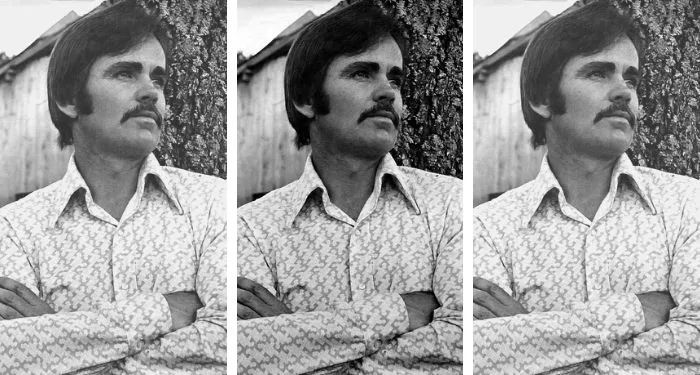


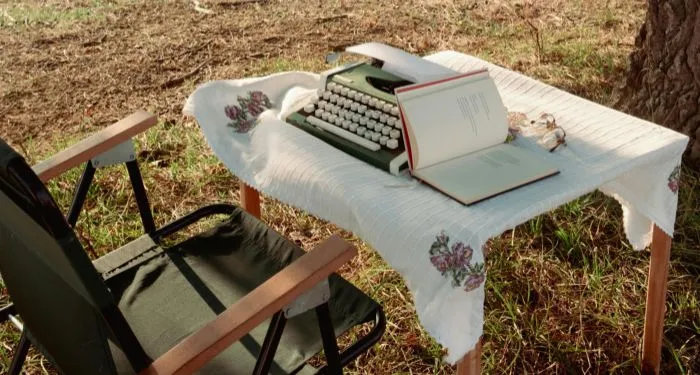
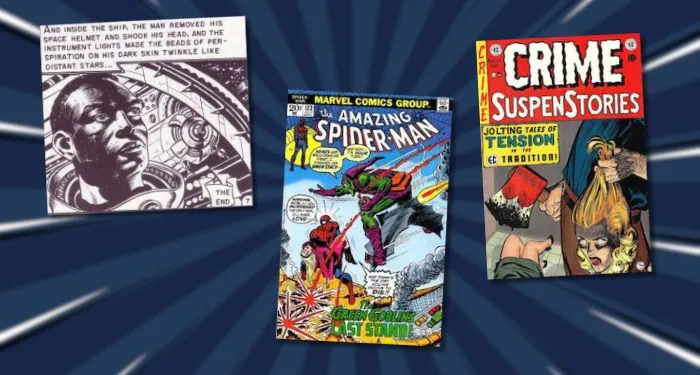
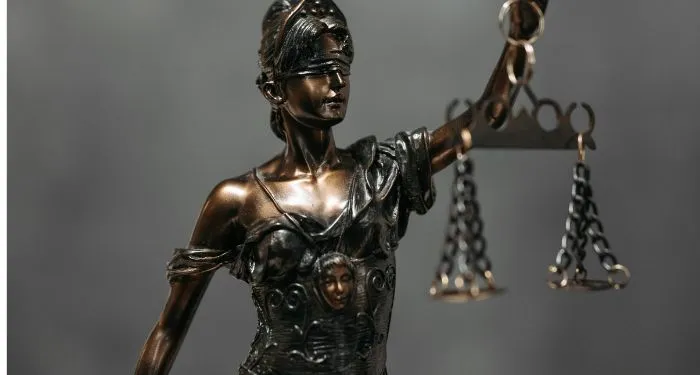

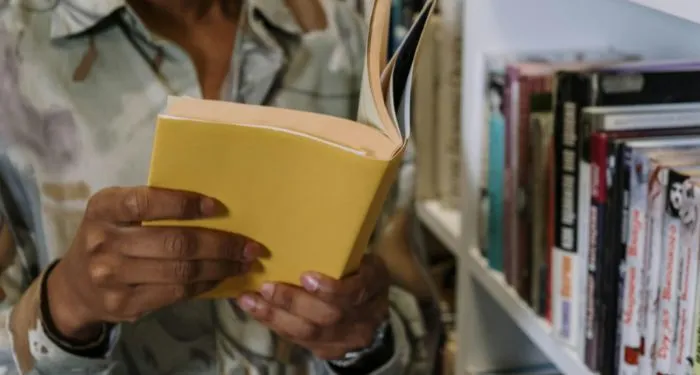
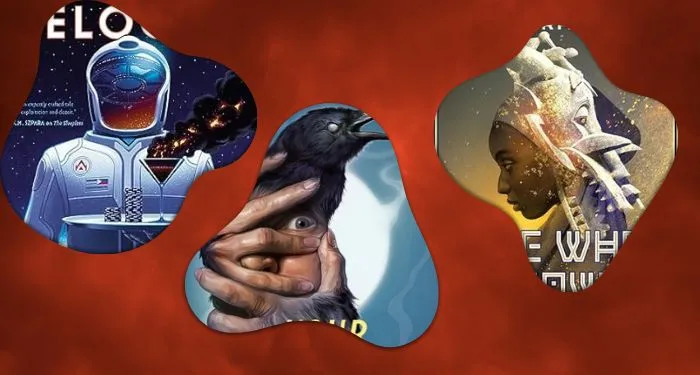
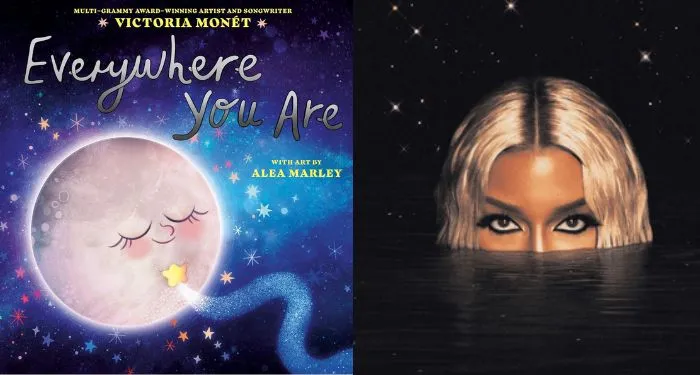


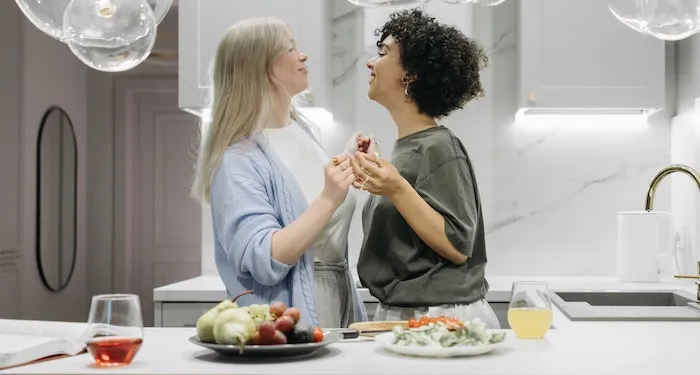

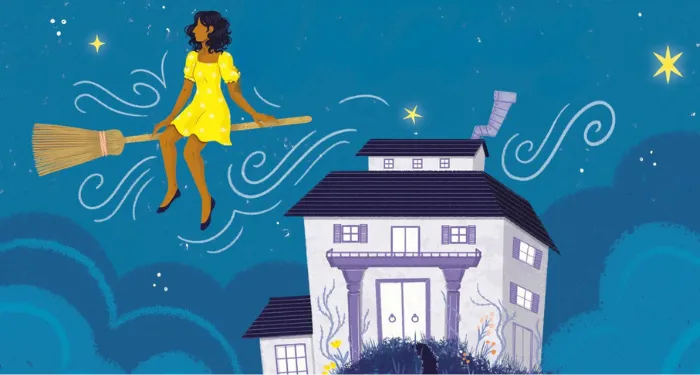


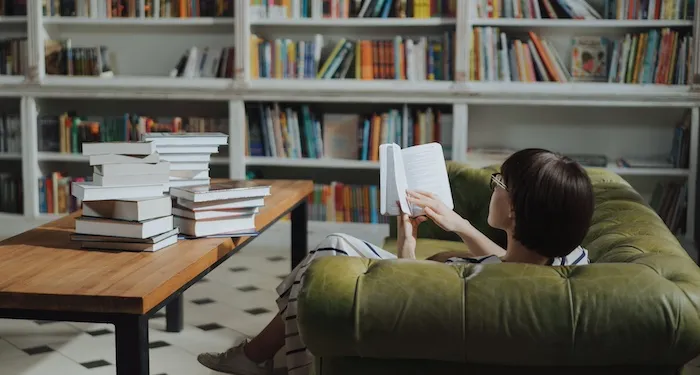
 English (US) ·
English (US) ·